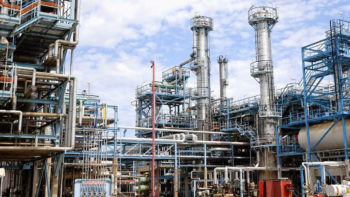
The Senate has asked the Ministry of Petroleum Resources to halt its effort to concession the Port Harcourt refinery to Agip and Oando.
The handover was to allow for the repairs and the operation of the facility.
The Senate said on Tuesday that the process should be suspended pending its investigation amid concerns over the transparency of the process.
The Minister of Petroleum, Ibe Kachikwu, had on May 9 announced that the Nigerian Agip Oil Company, a subsidiary of the Italian oil giant, Eni, had committed to repairing the Port Harcourt refinery, as part of a $15 billion investment that includes building a 150 thousand barrel per day refinery and a power plant.
The plan was aimed at strengthening Nigeria’s drive to end fuel importation by 2019, Kachikwu said.
But following a motion by Mohammed Sabo, APC-Jigawa, on Tuesday, the Senate expressed worry with the process, allegedly characterized by lack of clarity, due process and transparency.
In a statement on May 16, Oando’s Chief Strategy and Corporate Services officer, Ainoije Irune, confirmed the company was a party to the agreement reached between Agip and the federal government to repair, operate and maintain (ROM) the Port Harcourt refinery, an arrangement planned to see the facility’s capacity grow from its current 30 per cent to 100 per cent of its 210,000 barrels per day capacity.
“In line with the concerted efforts of the Ministry of Petroleum Resources and the Nigeria National Petroleum Corporation (NNPC) to aggressively drive private sector led refineries rehabilitation and expansion programs, Oando as local partners to NAOC/ENI will support the rehabilitation of PHRC’s on activities of terminalling, logistics, structuring and funding,” Irune explained.
Although he said final agreement would be reached by end of July 2017, Oando’s confirmation and May 9 announcement by Kachikwu suggested the government had already concluded to concession the refinery to Agip and its partners, Oando.
In his presentation on Tuesday, Sabo said the planned concession would have been “wonderful”, as it meant ending importation of refined petroleum products by 2019.
He, however, queried the process of the transactions, which he said was without recourse to due process and, thus, “is illegal and a clear attempt at ridiculing Nigerians and would definitely create a big hole that would be hard to fill in the anti-corruption crusade of the present administration.”
He queried: “Was there observance of the privatization law as regards due diligence, selection from preferred bidders before ceding the Port Harcourt refinery to Agip/Oando?”
For such transaction, he said, “the best practice is to select partners through open and competitive bidding, i.e. prepare the business for sale, market the business, buyers selection and close transaction.”
He alleged that the process had been without the participation of relevant authorities, such as the Bureau of Public Enterprises and the National Council on Privatisation which are statutorily empowered to conduct such exercise, adding that labour unions were not aware of “the deal that is supposed to be officially signed in July this year.”
The senator added that the deal “hatched in the dark without the knowledge and participation of the relevant stakeholders” would lead to sub-optimal outcomes for the federal government.
He said he would rather the authorities asked Agip to consider rehabilitating the Warri refinery which they built, not the Port Harcourt refinery – built by Japan – where the company has no technical history.
Following Sabo’s motion, the Senate resolved to ask the federal government to halt the process of the concession pending “a holistic investigation to determine how and why such a deal was sealed and the criteria to select Agip/Eni and Oando Plc to operate and maintain Port Harcourt refinery at what cost and timeframe.”
Copyright Ships & Ports Ltd. Permission to use quotations from this article is granted subject to appropriate credit given to www.shipsandports.com.ng as the source.